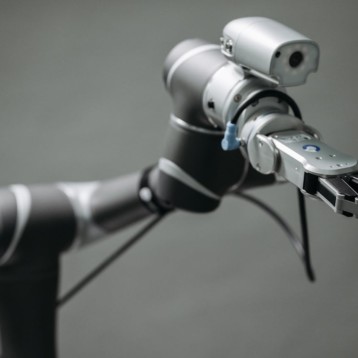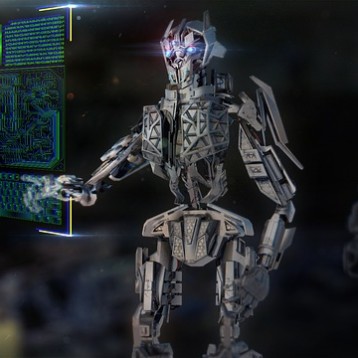The three-year project is dubbed “Roboskin” and is an international collaboration between several European institutes: University of Hertfordshire (UK), Universita di Genova (Italy), Ecole Polytechnique Federale Lausanne (Switzerland), Italian Institute of Technology, University of Wales at Newport, and Universita di Cagliari (Italy).
The project’s goal is to develop a robot with skin and embedded tactile sensors. According to Professor Kerstin Dautenhahn of Hertfordshire’s School of Computer Science, the finalized skin will be applied to Kaspar, a child-sized humanoid robot developed by the Adaptive Systems research group at the university.
Currently Kaspar is used by Dr. Ben Robins and his colleagues at Hertfordshire University to encourage social interaction skills in children with autism. The team intends to cover Kaspar with robotic skin while Dr. Daniel Polani will develop new sensor technologies that will provide tactile feedback from areas of the robot’s body. Thanks to this feedback, the robot will be able to respond to different styles of children at play, thus helping autistic children to develop socially appropriate playful interaction (e.g. not too aggressive) when interacting with the robot and other people.
“Children with autism have problems with touch, often with either touching or being touched,” said Professor Kerstin Dautenhahn. “The idea is to put skin on the robot as touch is a very important part of social development and communication and the tactile sensors will allow the robot to detect different types of touch and it can then encourage or discourage different approaches.”
TFOT has covered other research projects concerning autism, such as UCLA’s attempt to develop a drug that could treat learning disabilities caused by autism spectrum disorders, and the recent generation of a mice model for autistic savants, generated by researchers from MIT. Other related TFOT stories include coverage of the HAL Robot Suit, designed for paralyzed people in order to help them walk again, and an article on mind controlled bionic limbs, a potential future accessory for the disabled.
For more information about the Roboskin project, see Hertfordshire University’s press release.










